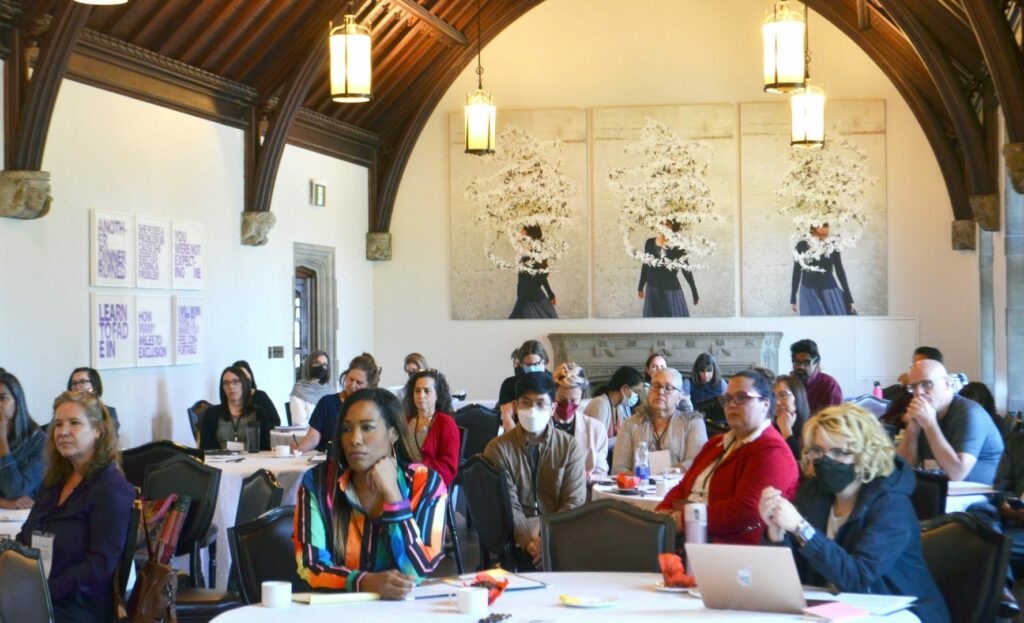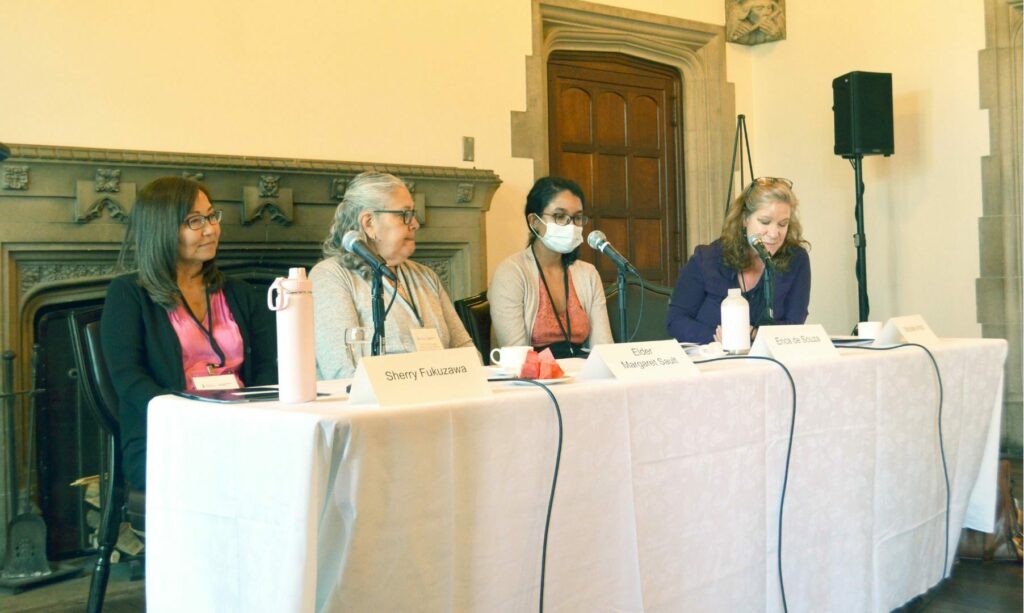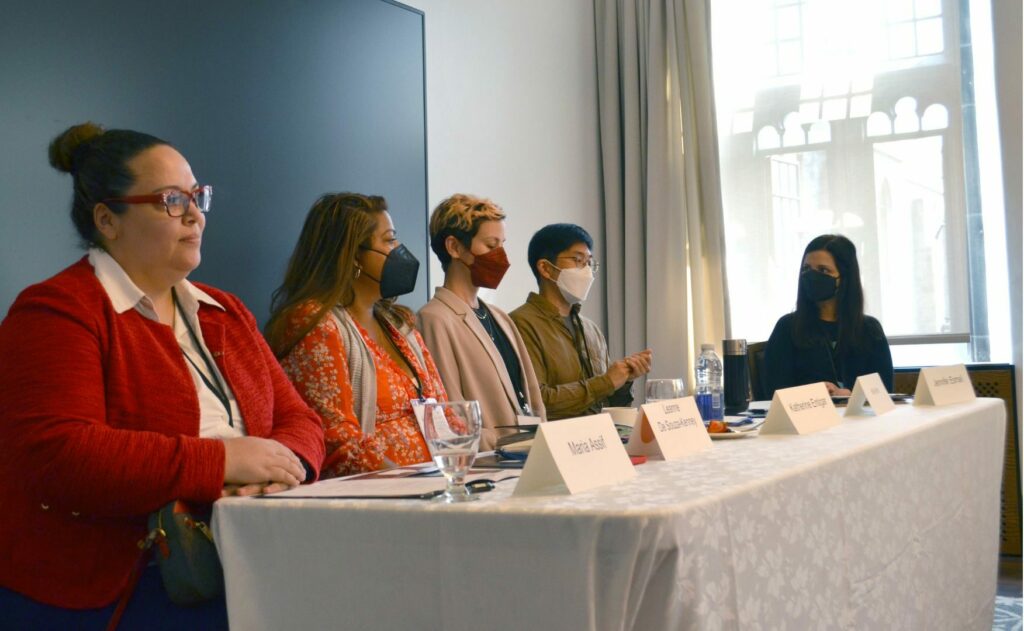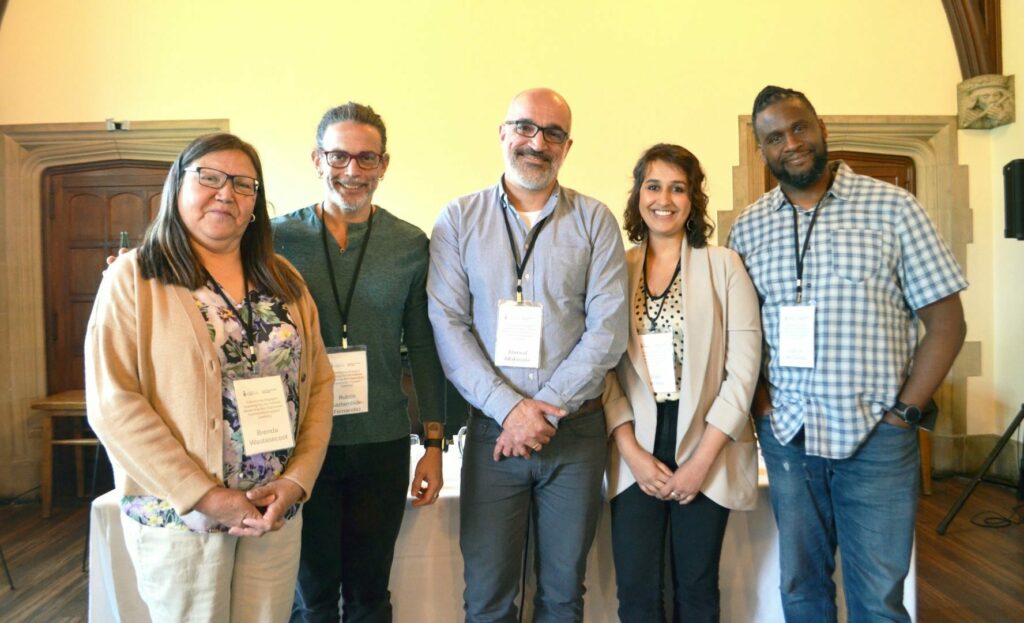Faculty Institute 2023
In May, the Centre for Community Partnerships (CCP) presented the 2023 Community-Engaged Learning (CEL) Faculty Institute, Advancing Anti-Oppressive Community-Engaged Learning. The Institute is an annual event that brings CEL instructors together for sharing and learning alongside a plenary speaker and various panels.
To help frame the discussions of this year’s institute, the CCP developed a draft definition for anti-oppressive approaches to CEL:
Anti-oppressive community-engaged learning seeks to challenge systemic oppressions through community-driven and collaborative learning and action for social justice. Such approaches prioritize the leadership, knowledge and autonomy of structurally-excluded communities in partnerships that are anchored in accountability and critical reflection.
The institute began on May 10th with a virtual keynote by Professor Timothy K. Eatman, an educational sociologist and publicly engaged scholar, who serves as the Inaugural Dean of the Honors Living – Learning Community, and is a Professor of Urban Education at Rutgers University-Newark. In Professor Eatman’s keynote address, No More Smoke and Mirrors: Publicly Engaged Scholarship in 21st Century Academe – Beware the Shrinking Imagination, he offered that the work of ‘imagining’, through the incorporation of and engagement with the arts and humanities, can serve as a framework for reconciling weaknesses within traditional approaches to knowledge production. Cultivating and caring for imagination, he argued, can also help to activate, enrich, and deepen anti-oppressive community engagement.
To watch a recording of the keynote, please click here: https://youtu.be/pmncjmQwrXM
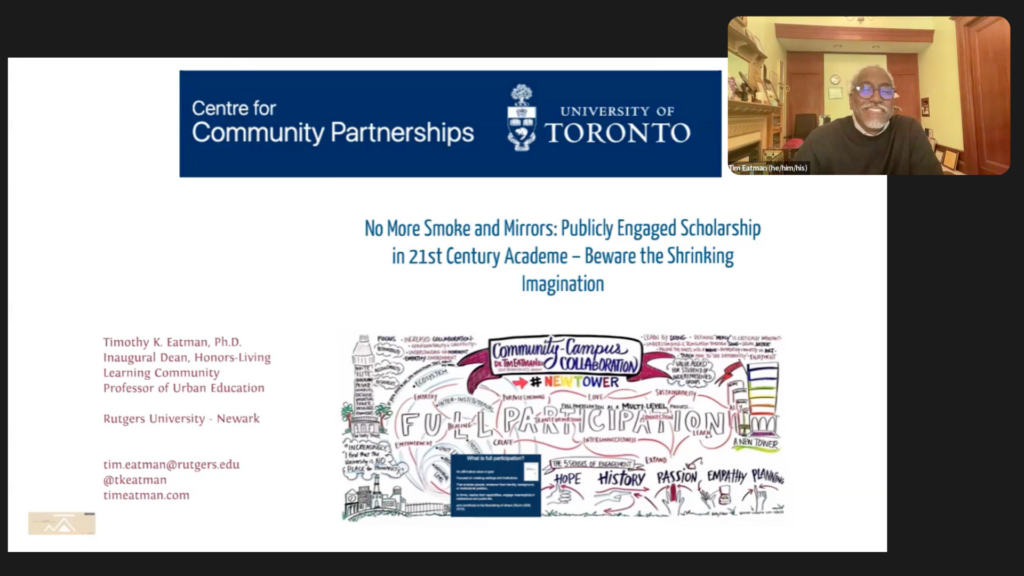
The virtual keynote was followed by an in-person, half-day event at the University of Toronto, which featured a large group reflection on anti-oppressive teaching, concurrent panels featuring a range of CEL instructors, and a roundtable of experienced community engaged scholars who were asked to consider what anti-oppressive CEL looks like to them, what potential barriers to this vision of anti-oppressive CEL do they see, and what kinds of radical possibilities could anti-oppressive approaches to CEL bring into being. Key themes that emerged from the discussions included: the importance of critically considering the lived experience and identities of students involved in CEL courses; the challenges and opportunities that pandemic teaching offered CEL instructors; barriers associated with funding; ethical contradictions in institutional approaches to CEL; the value of CEL to students and community partners; the importance of building trust and relationships in CEL; using CEL to challenge neoliberal institutional structures; and how CEL can disrupt the privileging of western knowledge systems in university contexts.
